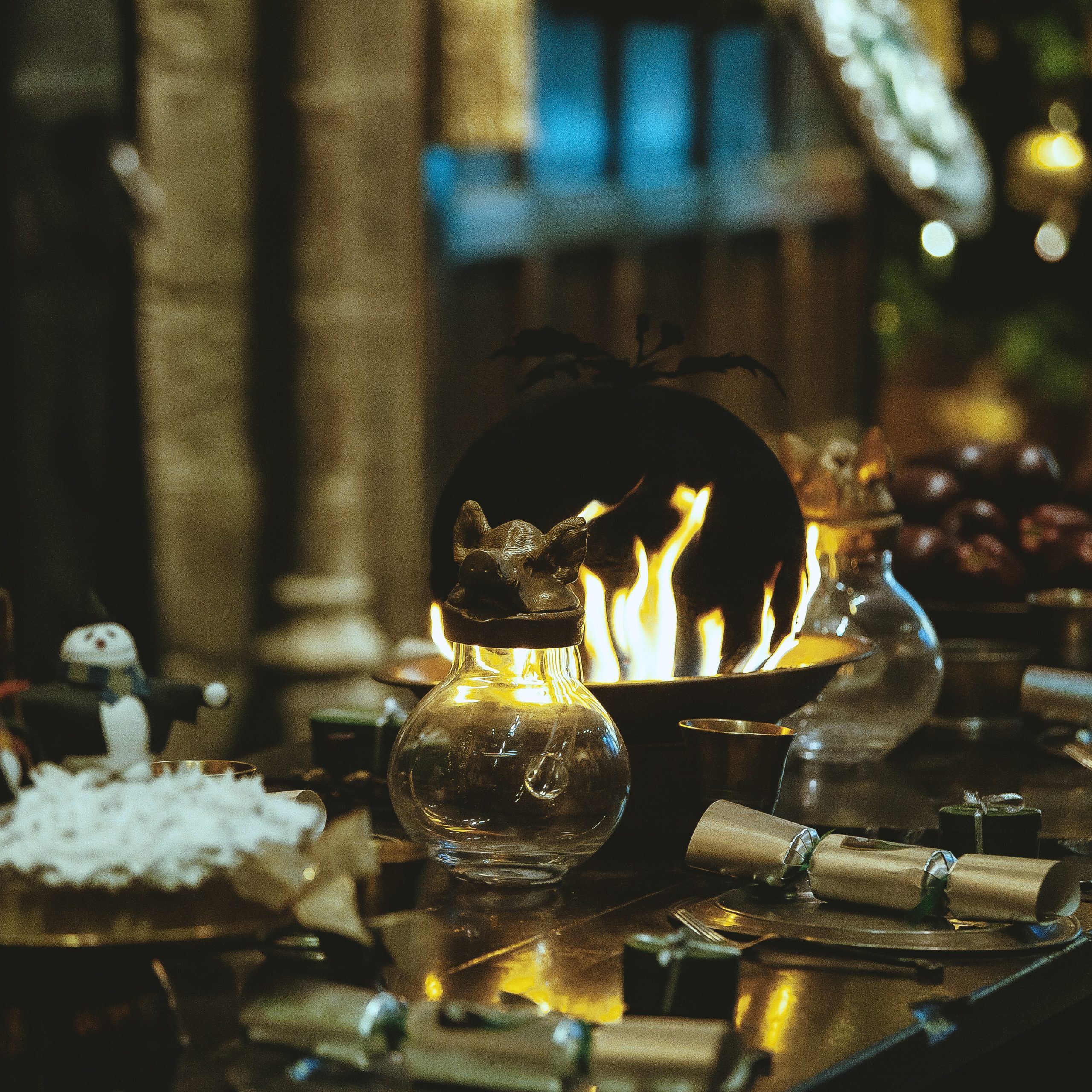Fictional Foods

Olivia Garrett explores the mouth-watering world of fictional food.
When you’re three, it’s Dr Seuss. Ordinary food is still strange, exotic and visual; you marvel at the bright rich colours of the Green Eggs and Ham and wonder what on earth is the Who’s Roast Beast.
At five, it’s Roald Dahl and Lewis Carroll; food suddenly becomes a vehicle, and all you can think about is flying off on a giant peach or sailing down a river of chocolate. Then food becomes transformative and magical. If you’re like me, you would have tried to simulate the sticky, gross concoction from George’s Marvellous Medicine, or drank a whole carton of apple juice and fancied yourself Mr Bean from Fantastic Mr Fox. Small cakes make you big and drinks can make you small, and you steal away a jam tart so the evil queen (or your parents) don’t know.
At eight, you consider yourself as having a more sophisticated palette. Having read Malory Towers, the taste for tea, scones and status starts. Food becomes associated with class and situation, and if you want to be a part of the Famous Five you better develop a love for picnics.
Food becomes transformative and magical…
Then comes the tween years and food becomes swept up in a world of fantasy and wars. You’re permanently put off Turkish Delight because of Edmund’s stupid decisions, Lembas bread sounds amazing and useful but not as good as having a second breakfast followed by elevenses. You share with Harry’s wonder as he looks at the Hogwarts feast for the first time and wait desperately for your letter. Back when there wasn’t a Harry Potter Studios, you had no idea what Butter Beer or Chocolate Frogs would be like and when they did come out you relished in convincing friends that the vomit flavoured Bertie Bott’s bean was actually tropical fruit. With the rise of YA you travel with the myriad of brunette heroines like Katniss. In the capital you read about the plum stew and duck and feel that combined sense of awe and disgust at their greed.
As you get older food becomes more and more entrenched in meaning, even if that meaning is not obvious straightaway. Avocados, not just a student trend but a symbol of defiance to the confines of gender norms in Sylvia Plath’s The Bell Jar. The oranges and hearty Italian pastas of The Godfather come after death and tragedy. And the talking cow from Hitchhiker’s Guide to the Galaxy is good for opening debates about veganism. Fictional food is not just there to make you hungry, it’s there to communicate, to inform and to build the world of those books you’ve grown up loving.


